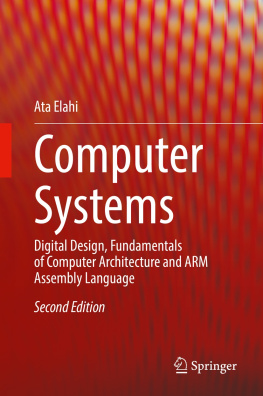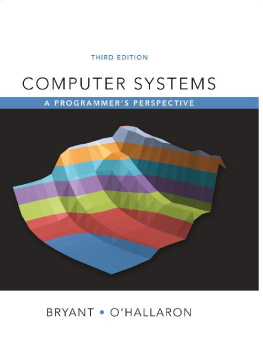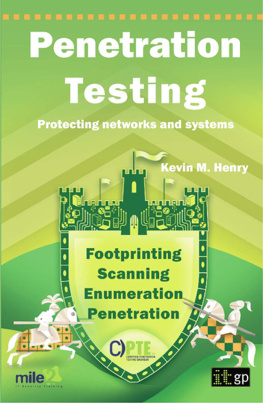CYBERSECURITY AND CYBERWAR
WHAT EVERYONE NEEDS TO KNOW
In our digital age, the issues of cybersecurity are no longer just for the technology crowd; they matter to us all. Whether you work in business or politics, the military or the mediaor are simply an ordinary citizenthis is an essential read.
Eric Schmidt, Executive Chairman, Google
This is the most approachable and readable book ever written on the cyber world. The authors have distilled the key facts and policy, provided sensible recommendations, and opened the debate generally to any informed citizen: a singular achievement. A must read for practitioners and scholars alike.
Admiral James Stavridis, US Navy (Ret), former NATO Supreme Allied Commander
In confronting the cybersecurity problem, its important for all of us to become knowledgeable and involved. This book makes that possibleand also fascinating. Its everything you need to know about cybersecurity, wonderfully presented in a clear and smart way.
Walter Isaacson, author of Steve Jobs
If you read only one book about all this cyberstuff, make it this one. Singer and Friedman know how to make even the most complicated material accessible and even entertaining, while at the same time making a powerful case for why all of us need to know more and think harder about the (cyber)world we know live in.
Anne-Marie Slaughter, President, the New America Foundation
Singer and Friedman blend a wonderfully easy to follow FAQ format with engaging prose, weaving explanations of the elements of cybersecurity with revealing anecdotes. From the fundamentals of Internet architecture to the topical intrigue of recent security leaks, this book provides an accessible and enjoyable analysis of the current cybersecurity landscape and what it could look like in the future.
Jonathan Zittrain, Professor of Law and Professor of Computer Science at Harvard University, and author of The Future of the InternetAnd How to Stop It
Singer and Friedman do a highly credible job of documenting the present and likely future risky state of cyber-affairs. This is a clarion call.
Vint Cerf, Father of the Internet, Presidential Medal of Freedom winner
I loved this book. Wow. Until I read this astonishing and important book, I didnt know how much I didnt know about the hidden world of cybersecurity and cyberwar. Singer and Friedman make comprehensible an impossibly complex subject, and expose the frightening truth of just how vulnerable we are. Understanding these often-invisible threats to our personal and national security is a necessary first step toward defending ourselves against them. This is an essential read.
Howard Gordon, Executive Producer of 24 and co-creator of Homeland
CYBERSECURITY AND CYBERWAR
WHAT EVERYONE NEEDS TO KNOW
P. W. SINGER AND
ALLAN FRIEDMAN


Oxford University Press is a department of the University of Oxford.
It furthers the Universitys objective of excellence in research, scholarship,
and education by publishing worldwide.
Oxford New York
Auckland Cape Town Dar es Salaam Hong Kong Karachi
Kuala Lumpur Madrid Melbourne Mexico City Nairobi
New Delhi Shanghai Taipei Toronto
With offices in
Argentina Austria Brazil Chile Czech Republic France Greece
Guatemala Hungary Italy Japan Poland Portugal Singapore
South Korea Switzerland Thailand Turkey Ukraine Vietnam
Oxford is a registered trademark of Oxford University Press
in the UK and certain other countries.
What Everyone Needs to Know is a registered trademark of Oxford University Press.
Published in the United States of America by Oxford University Press
198 Madison Avenue, New York, NY 10016
P. W. Singer and Allan Friedman 2014
All rights reserved. No part of this publication may be reproduced, stored in a retrieval system, or transmitted, in any form or by any means, without the prior permission in writing of Oxford University Press, or as expressly permitted by law, by license, or under terms agreed with the appropriate reproduction rights organization. Inquiries concerning reproduction outside the scope of the above should be sent to the Rights Department, Oxford University Press, at the address above.
You must not circulate this work in any other form
and you must impose this same condition on any acquirer.
Library of Congress Cataloging-in-Publication Data
Singer, P. W. (Peter Warren)
Cybersecurity and cyberwar : what everyone needs to know / Peter W. Singer,
Allan Friedman.
ISBN 9780199918096 (hardback)ISBN 9780199918119 (paperback)
1. Computer securityUnited States 2. Computer networksSecurity
measuresUnited States. 3. CyberspaceSecurity measuresUnited States.
4. CyberterrorismUnited StatesPrevention. 5. Information warfareUnited
StatesPrevention. I. Title.
QA76.9.A25S562 2014
005.8dc23
2013028127
1 3 5 7 9 8 6 4 2
Printed in the United States of America
on acid-free paper
CONTENTS
All this cyber stuff.
The setting was a Washington, DC, conference room. The speaker was a senior leader of the US Department of Defense. The topic was why he thought cybersecurity and cyberwar was so important. And yet, when he could only describe the problem as all this cyber stuff, he unintentionally .
Both of us are in our thirties and yet still remember the first computers we used. For a five-year-old Allan, it was an early Apple Macintosh in his home in Pittsburgh. Its disk space was so limited that it could not even fit this book into its memory. For a seven-year-old Peter, it was a Commodore on display at a science museum in North Carolina. He took a class on how to program, learning an entire new language for the sole purpose of making one of the most important inventions in the history of mankind print out a smiley face. It spun out of a spool printer, replete with the perforated paper strips on the side.
Three decades later, the centrality of computers to our lives is almost impossible to comprehend. Indeed, we are so surrounded by computers that we dont even think of them as computers anymore. We are woken by computerized clocks, take showers in water heated by a computer, drink coffee brewed in a computer, eat oatmeal heated up in a computer, then drive to work in a car controlled by hundreds of computers, while sneaking peeks at the last nights sport scores on a computer. And then at work, we spend most of our day pushing buttons on a computer, an experience so futuristic in our parents day that it was the stuff of The Jetsons (George Jetsons job was a digital index operator). Yet perhaps the best way to gain even a hint of computers modern ubiquity is at the end of the day. Lie in bed, turn off the lights, and count the number of little red lights staring back at you.
These machines are not just omnipresent, they are connected. The computers we used as little kids stood alone, linked to nothing more than the wall electricity socket and maybe that spool printer. Just a generation ago, the Internet was little more than a link between a few university researchers. The first electronic mail was sent in 1971. The children of those scientists now live in a world where almost 40 trillion e-mails are sent a year. The first website was made in 1991. By 2013, there were over .
Moreover, the Internet is no longer just about sending mail or compiling information: it now also handles everything from linking electrical plants to tracking purchases of Barbie dolls. Indeed, Cisco, a company that helps run much of the back end of the Internet, estimated that 8.7 billion devices were connected to the Internet by the end of 2012, a figure it believes will rise to 40 billion by 2020 as cars, fridges, medical devices, and or invented all link in. In short, domains that range from commerce to communication to the critical infrastructure that powers our modern-day civilization all operate on what has become a globalized network of networks.
Next page






